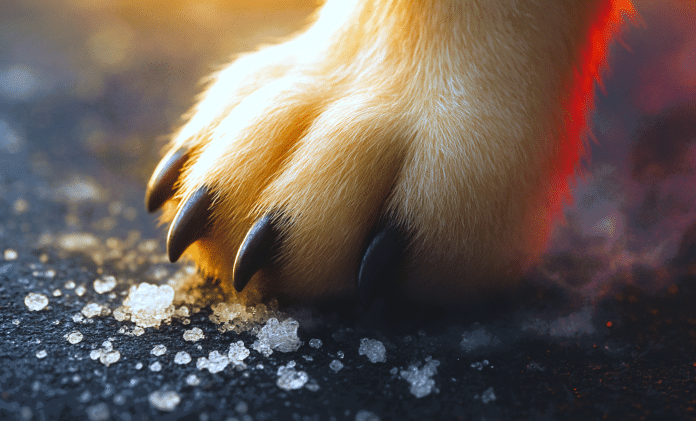Providence, RI – As the first winter snows approach Rhode Island, veterinarians are reminding pet owners to protect their dogs and cats from an often-overlooked cold-weather hazard: road salt and chemical de-icers. These products, commonly used to keep sidewalks and roads clear, can burn paw pads, irritate skin, and cause toxic reactions if pets lick or ingest them.
Most road salts contain sodium chloride, calcium chloride, or magnesium chloride, chemicals that can dry and crack paw pads on contact. When dogs lick their feet after walks, they may swallow small but harmful amounts of these substances. The results can range from vomiting and diarrhea to more serious conditions like seizures or kidney problems.
Veterinary specialists note that some commercial ice melts also contain heavy metals or industrial byproducts, increasing the potential for long-term harm. Repeated exposure can cause lasting paw damage, dehydration, and digestive issues.
To minimize risk, experts advise washing or wiping your pet’s paws with warm water after every walk and drying them thoroughly. A protective paw balm can help create a barrier, while trimming fur between the toes prevents salt and slush buildup. Booties are another option for pets that will wear them, providing solid protection on treated streets.
Pet owners are also encouraged to switch to pet-safe, chloride-free ice melt around their homes and driveways. Avoiding heavily salted sidewalks and parking lots can make a significant difference, especially during the first round of snow treatments.
With temperatures dipping below freezing and road crews preparing for early-season snow, veterinarians across Rhode Island urge owners to stay alert for signs of paw irritation, limping, or licking after walks.
As winter arrives along the southern New England coast, experts say the real threat to pets isn’t just the chill—it’s the toxic salt beneath their paws.





